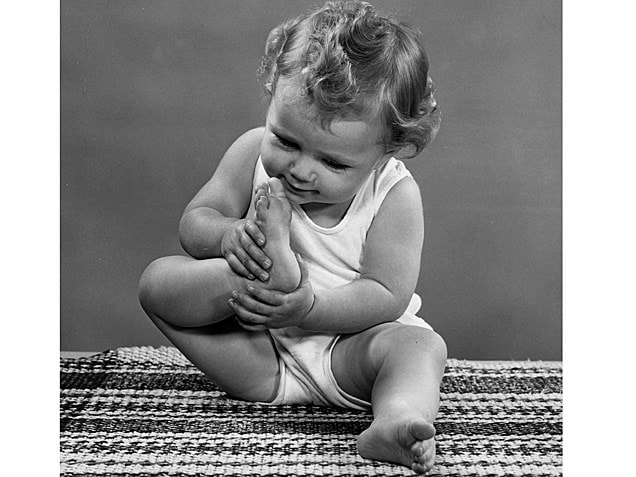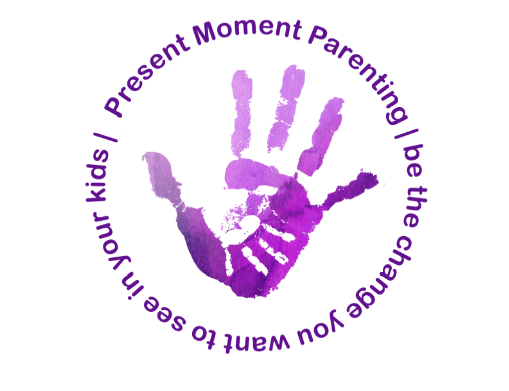
It is a fundamentally human thing to desire. We all have things that we want. Maybe we want to be healthier, or happier, or we’d like another job or a new car or a break for a week, or a chance to pee in peace, or something delicious for dinner, or for our train to run on time, or our boss to give us a Christmas bonus, or our partner to pack the dishwasher without being asked. It is also fundamentally human to feel intense disappointment, anger and resentment when our desires go unfulfilled; as most of them will.
Our children are human (I think we forget this sometimes) and so have both desires and the ensuing frustration when the things they want are not readily forthcoming.
Our children are human (I think we forget this sometimes) and so have both desires and the ensuing frustration when the things they want are not readily forthcoming.
Our job as parents is definitely not to fulfil our child's every desire. At a gut level we know this. We talk about spoiled brats and we feel our own resentment when our children have far more than we ever had and still want more. Desire never ends, by the way – for them and for us. Notice the next time you get something you wanted and see how you immediately start making plans to get the next thing.
Saying “no” is an important part of parenting.
However…
We do need to acknowledge the desire. Our children are not wrong for desiring. They are human. And if we punish them for something that is in their nature then they will grow up always thinking there is something wrong with them that needs fixing. Then, no matter how hard they try, being unable to fix it.
We know that desire is the root cause of all our suffering. Wanting things. Wanting things to be different to what they are. Wanting things to turn out some way in a future we have no control over. Wanting what someone else has. Wanting other people to behave more like us. Every time you're suffering, look at what it is that you desire and you'll find the cause of your suffering in your own mind.
The best gift that we can give our children in this regard is neither the fulfilment of all desires nor the negation of all their desires, but the ability to transcend the whole desire-suffering game altogether.
We do this by focusing first on what is. What is, is that the desire is there in the first place. So focus on that.
“You really really want xyz.”
Acknowledge that.
Then again focus on what is.
“And you cannot have it.”
It's the truth. You can't have everything you want. We don't need to be mean about it. Just acknowledge it.
And lastly, focus again on what is: That that hurts. The pain is real. The frustration is real. The anger is real. Acknowledge it. Don’t make it bad or wrong. Allow it to be, to be expressed, and to pass.
The quickest way to move through something is to be fully in it in the first place.
When children learn to accept, acknowledge, experience and move through these phases of desire, frustration of desire, and emotional pain, without adding additional stress and meaning to them they will also learn to flow with what the rest of what life has to offer. They will learn to observe themselves and life in its many forms. They will learn not to judge themselves or life as both constantly change. They will learn that they can’t control everything and that’s ok. They will learn to be present with what is.
This is peace (even if you’re still accompanied by two or three little people every time you pee).
Saying “no” is an important part of parenting.
However…
We do need to acknowledge the desire. Our children are not wrong for desiring. They are human. And if we punish them for something that is in their nature then they will grow up always thinking there is something wrong with them that needs fixing. Then, no matter how hard they try, being unable to fix it.
We know that desire is the root cause of all our suffering. Wanting things. Wanting things to be different to what they are. Wanting things to turn out some way in a future we have no control over. Wanting what someone else has. Wanting other people to behave more like us. Every time you're suffering, look at what it is that you desire and you'll find the cause of your suffering in your own mind.
The best gift that we can give our children in this regard is neither the fulfilment of all desires nor the negation of all their desires, but the ability to transcend the whole desire-suffering game altogether.
We do this by focusing first on what is. What is, is that the desire is there in the first place. So focus on that.
“You really really want xyz.”
Acknowledge that.
Then again focus on what is.
“And you cannot have it.”
It's the truth. You can't have everything you want. We don't need to be mean about it. Just acknowledge it.
And lastly, focus again on what is: That that hurts. The pain is real. The frustration is real. The anger is real. Acknowledge it. Don’t make it bad or wrong. Allow it to be, to be expressed, and to pass.
The quickest way to move through something is to be fully in it in the first place.
When children learn to accept, acknowledge, experience and move through these phases of desire, frustration of desire, and emotional pain, without adding additional stress and meaning to them they will also learn to flow with what the rest of what life has to offer. They will learn to observe themselves and life in its many forms. They will learn not to judge themselves or life as both constantly change. They will learn that they can’t control everything and that’s ok. They will learn to be present with what is.
This is peace (even if you’re still accompanied by two or three little people every time you pee).
Transcending desire (and suffering) is possible at any age. If you'd like to start the journey to peace, why not take our Parenting Breakthrough Experience and find out how you can become more present and more fulfilled in your own life.
Check out this month's podcasts...










 RSS Feed
RSS Feed